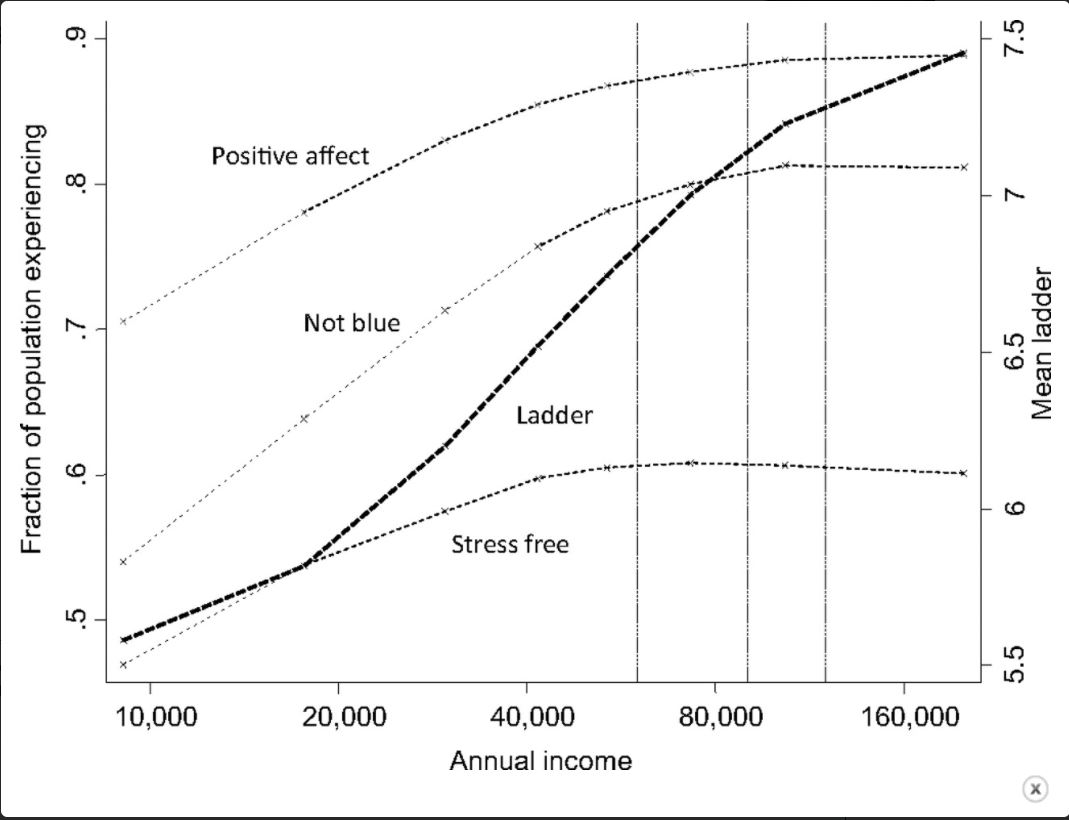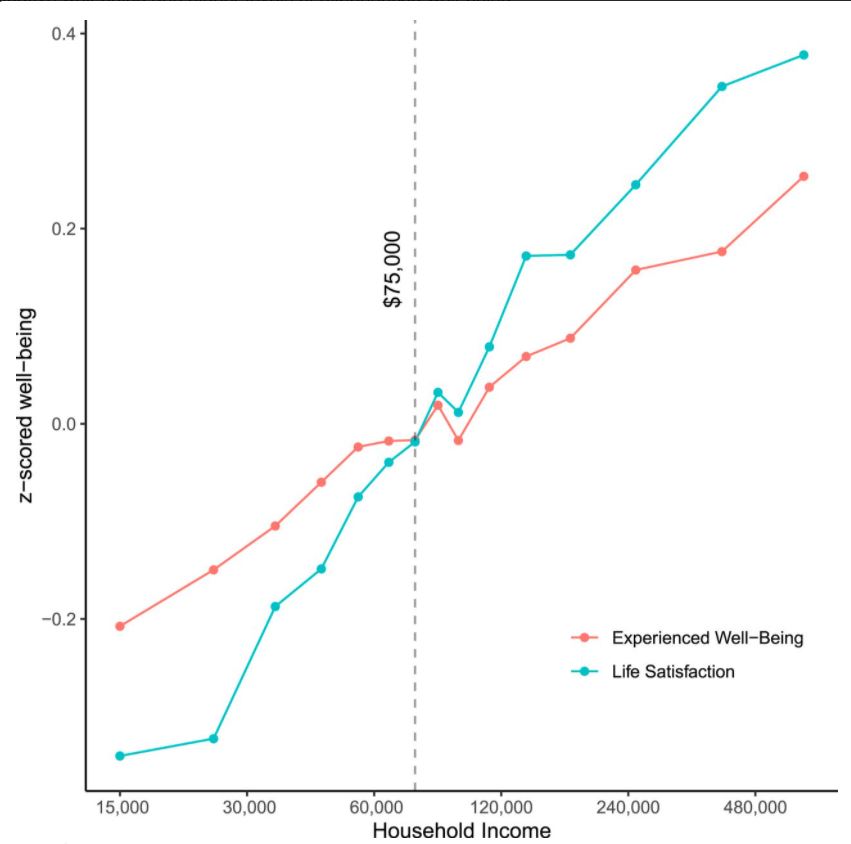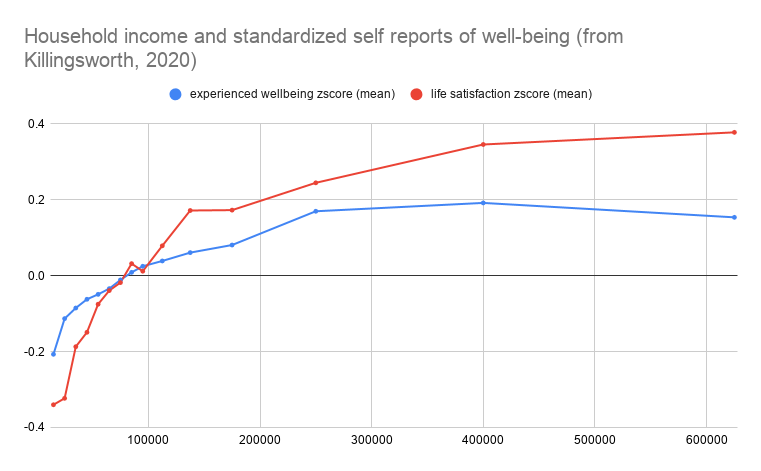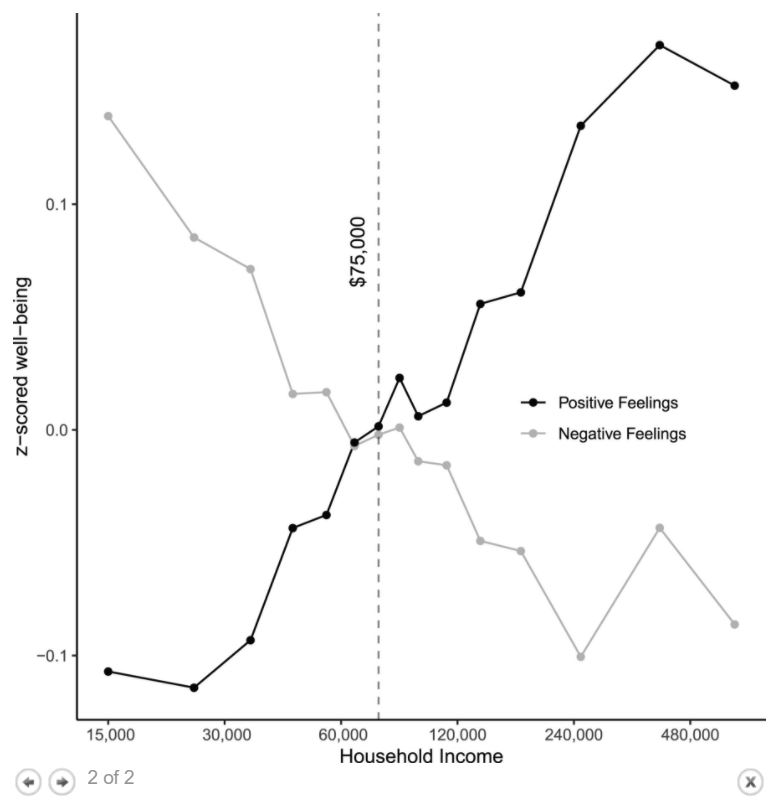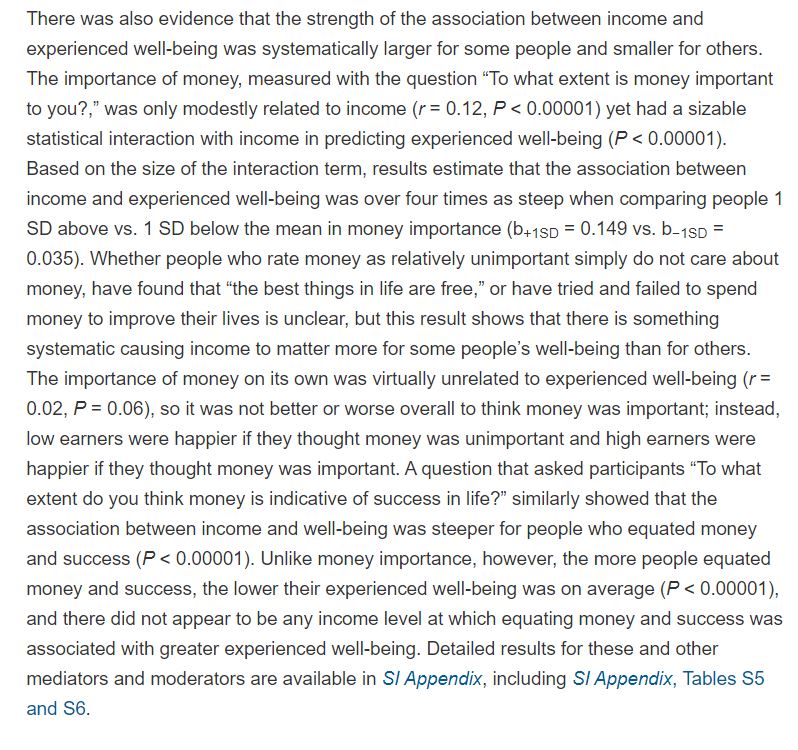Much-tweeted paper "Experienced well-being rises with income, even above $75,000 per year". I'm a happiness researcher. I explain why the title should be "Money barely increases happiness (unless you really value money, and even then not by much)" https://www.pnas.org/content/118/4/e2016976118 (1/15)
First, context. In 2010, two (now) Nobel Laureates @kahneman_daniel and @DeatonAngus publish "High income improves evaluation of life but not emotional well-being" using survey of 450,000 Americans. https://www.pnas.org/content/107/38/16489
Their main finding was that positive and negative 'affect' (aka 'mood' aka 'happiness') is basically flat after $75k household income even though overall life evaluation keep improving.
Two key details:
(1) they asked people about their happiness yesterday, ie used remembered happiness
(2) the x-axis is logarithmic, so each step is twice as big as the last (a bit like Richter scale for earthquakes) so money matters less the more you have. Which makes sense.
(1) they asked people about their happiness yesterday, ie used remembered happiness
(2) the x-axis is logarithmic, so each step is twice as big as the last (a bit like Richter scale for earthquakes) so money matters less the more you have. Which makes sense.
Okay. To the new paper. It has some major methodological improvements over KD (2010). It uses a smartphone app to ask people how they feel right now (no memory issues), has multiple observations per person, and uses a continuous scale (rather than just Yes/No - greater precision)
Its headline finding is that happiness and life satisfaction increase past $75k household income. Note it's a straight line, but (again) a plot of the relationship between happiness and log(income). But, nevertheless impressive, non?
Here are some (mistaken) conclusions one might draw:
(1) money makes a big difference to happiness
(2) you should go work at @GoldmanSachs to become happier (a consequence of (1)).
(1) money makes a big difference to happiness
(2) you should go work at @GoldmanSachs to become happier (a consequence of (1)).
The X-axis spans a huge range - $15k to $480k - and the changes in the Y-axis are tiny. They are reported in 'z-scores'. z-score of 1 means a 1 'standard deviation' increase. This is how social scientists talk but both terms are meaningless unless you are familiar with statistics
A doubling of income is associated with nearly a 0.1 standard deviation increase in happiness. In plain English, that's tiny increase. Something you'd barely notice. @jonaslindeloev has an excellent thread on this https://twitter.com/jonaslindeloev/status/1353834276014452736
But there's more. Here's the same headline graph, but plotting the relationship between z-score changes in well-being and income NOT using a log scale - courtesy of my colleague @JoelMcGuire12 at @HappierLivesIns - not so impressive anymore, am I right?
The paper also explores if the headline increase in happiness is caused by more positive feelings or fewer negative feelings and conducted a more detailed analysis using a smaller sample. But if you look at the last three points on fig. 2, there is no improvement after $240k
You might think "okay, so $240k household income is the limit, not $75k, that's my new target". But here's the kicker, what all the other twitter discussions I've seen have missed: the data indicate that money by itself makes almost no difference.
The study also asked people "To what extent is money important to you?" and found that was much more important than money itself: money has a much bigger effect on happiness if you *think* money is important (although the effect is still small). Quote:
AND it found people who equate success with money are less happy.
Hence, the conclusion is misleading. Better to say that money makes very little difference, except for those who think it does - and even for then it's still small.
Don't go to @GoldmanSachs unless you want to!
Hence, the conclusion is misleading. Better to say that money makes very little difference, except for those who think it does - and even for then it's still small.
Don't go to @GoldmanSachs unless you want to!
Epilogue: it is a bit puzzling that money has, in reality, so little impact. One of my favourite papers is "If money doesn't make you happy, then you probably aren't spending it right." https://psycnet.apa.org/record/2011-17293-002
One suggestion is that people help others more for their own happiness.
On top of the personal benefit, I think there's a strong ethical case for helping, and doing the most good when you do. If those interested, see the #effectivealtruism movement: https://www.effectivealtruism.org/
On top of the personal benefit, I think there's a strong ethical case for helping, and doing the most good when you do. If those interested, see the #effectivealtruism movement: https://www.effectivealtruism.org/

 Read on Twitter
Read on Twitter